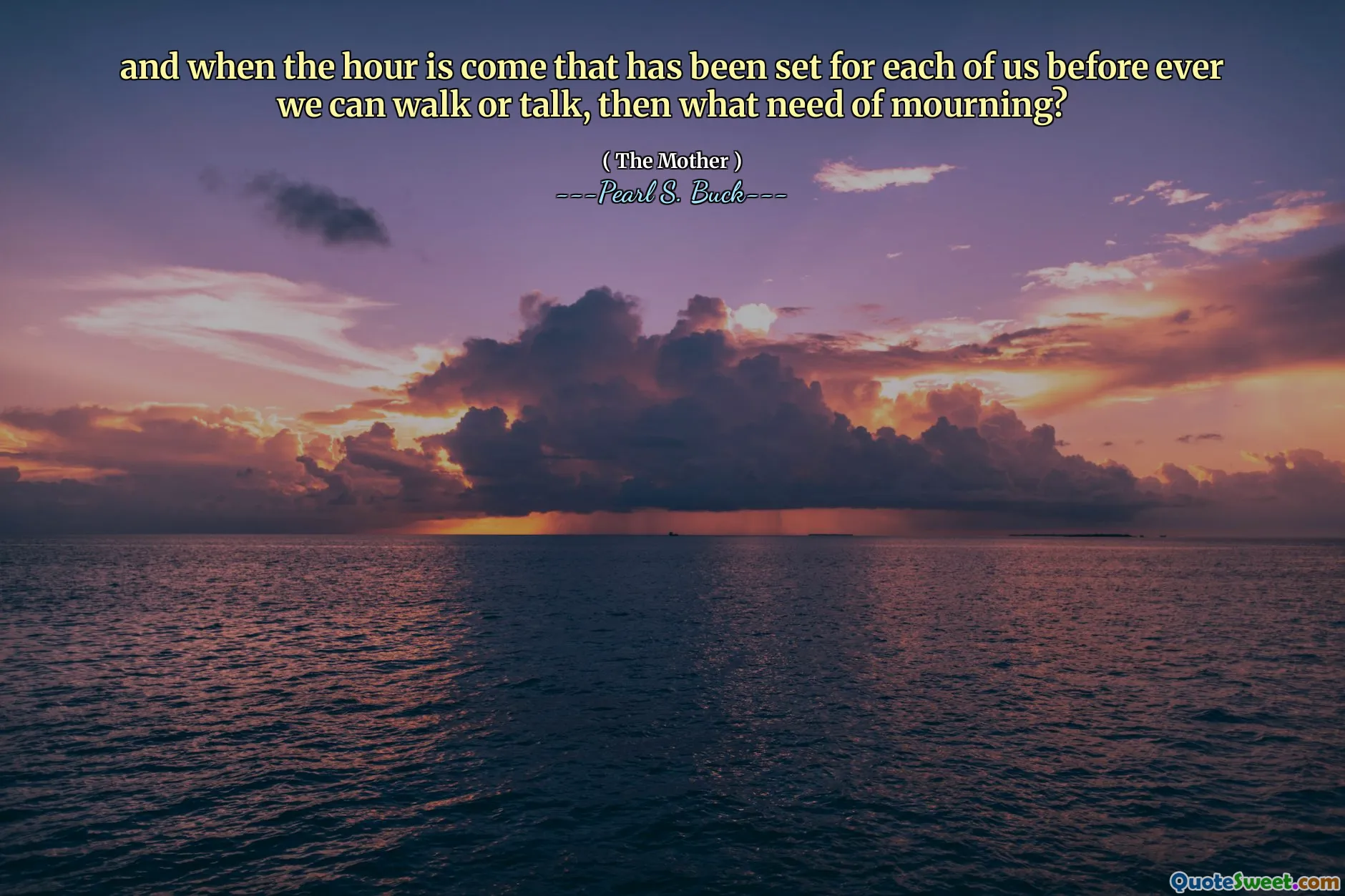
and when the hour is come that has been set for each of us before ever we can walk or talk, then what need of mourning?
This quote reflects on the inevitable nature of mortality and the predetermined course of our lives. It suggests that our life's timeline is set from the very beginning, long before we take our first steps or speak our first words. The mention of a specific hour—perhaps death or a destined moment—implies a acceptance of life's finite duration. It provokes thoughts on how human beings often struggle with grief and loss, yet perhaps such emotions are rooted in resistance to what is ultimately unavoidable. Embracing this truth can bring a sense of peace, as it acknowledges that life unfolds according to a greater plan, and that mourning, while natural, might be unnecessary when one accepts the inevitable. This perspective encourages us to focus on making each moment meaningful, understanding that our planned end is just part of the narrative. Living with awareness of mortality can inspire a more profound appreciation for present moments, pushing us to cherish relationships and experiences rather than cling to the illusion of permanence. The quote resonates deeply with philosophies that emphasize acceptance and the peaceful surrender to life's natural cycles. It invites us to reflect on how much of our suffering is tied to stubborn resistance against inevitable changes, and how liberation lies in accepting life's set course with grace. This mindset can foster resilience, humility, and a heightened sense of gratitude for the fleeting beauty of life, grounding us in the reality that our time here is precious and ultimately predetermined.






